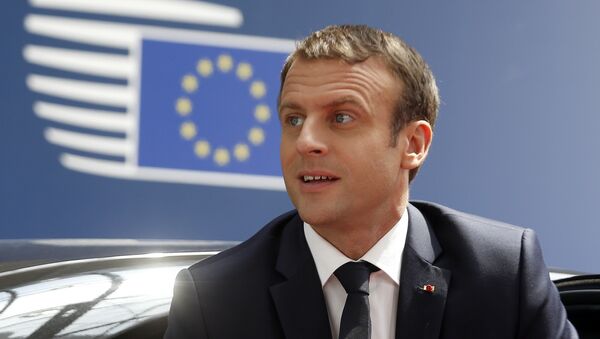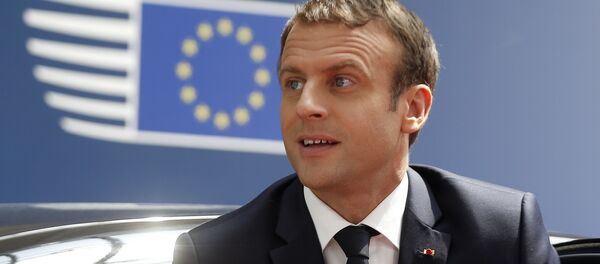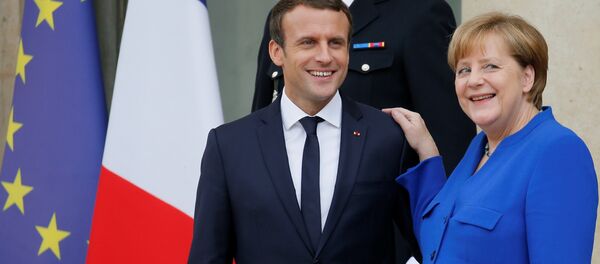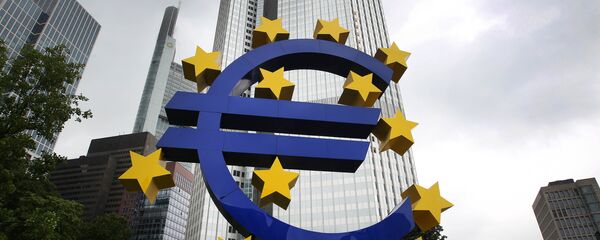Kristian Rouz – French President Emmanuel Macron proposed a “reboot” of the eurozone, suggesting that the Economic and Monetary Union (EMU) is not enough to provide for long-term sustainable economic expansion and minimize the risks of economic crises and shocks.
The French president’s proposals come at a time when the European Central Bank (ECB) is considering a liftoff in borrowing costs and a decrease of balance sheet, meaning that proportional fiscal policy measures are necessary to ensure a robust economic expansion in a higher interest rate monetary environment.
For example, if the ECB is planning an increase in base borrowing costs and a reduction of its asset portfolio, borrowing costs will go up across all 19 member states. This, in turn, would result in slower growth expectations in each nation, and a typical response to tighter monetary policy is looser fiscal policy measures, such as lower taxes, higher budget spending, etc.
In the eurozone in its current state, each nation would have to adjust its fiscal policies to the changes in the ECB’s monetary policies separately, resulting in a greater discrepancy in GDP growth in each country. Not every member state could afford a proportional fiscal stimulus in response to higher euro-denominated borrowing costs. Subsequently, some nations might be increasingly disgruntled by the ECB’s policies, rendering them more inclined to leave the bloc.
A common budget would encourage investment across the bloc at approximately the same level. Currently, nations like Greece, Germany and Estonia all have different degrees of investment appeal. A common budget would eliminate such things as the Greek debt crisis, allowing for investor perception of the entire eurozone as a bloc backed by the entire powerhouse of the single market economy, which is the world’s largest in terms of combined GDP.
Germany said it is welcoming the idea, mainly because a common European budget would be easier to manage, and it would help avoid such things as bailouts for Greece at the expense of the German taxpayer, which gained a lot of bad publicity in 2015.
“I’ve personally always said: it depends on how,” the German Chancellor Angela Merkel said. “I have nothing against a euro-area budget. I have proposed in 2012 a smaller euro-area budget and failed miserably. I’m very glad that this idea is being introduced again.”
Also, in order to properly manage the eurozone single fiscal policy, the bloc would require a single finance minister. The German Finance Minister Wolfgang Schaeuble has publicly advocated the idea for a while, meaning that France and Germany, the eurozone’s two largest economies, have a coordinated vision of the matter.
However, the idea of a European Fiscal Union (EFU) is lacking support from certain nations, and from various political forces within the nations that tend to support the EFU. It has been proven empirically that the ECB single monetary policies of looser monetary environments and lower borrowing costs have greatly benefited the economies of the European South, to sheer dissatisfaction of Germany, where robust economic growth demands tighter monetary conditions in order to avoid asset bubbles.
A fiscal union might work the opposite way. Most likely, it would favor the policies of austerity and fiscal discipline in order to curb the national debt issues some European nations have. Subsequently, it would benefit such nations as Germany, whilst austerity would keep hampering the economic expansion in Southern Europe.
Besides, levels of personal and business income taxation might increase for some member states, whilst decrease for others. Another problem is, the currently heavily-indebted nations would need to be barred from further irresponsible borrowing, otherwise, they might drag everyone down, including the fiscally responsible member states.
All this means that a fiscal union would require a complicated structure of checks and balances to keep it running, otherwise, with all the fiscal policy power in the hands of a single finance minister, certain eurozone regions might receive fiscal policy preferences over others, eventually leading the entire integration project to its collapse.





